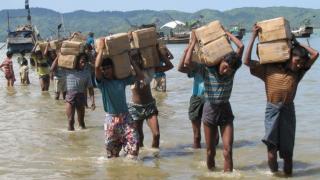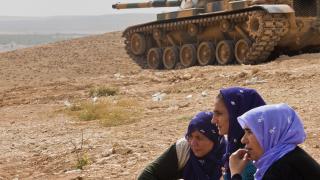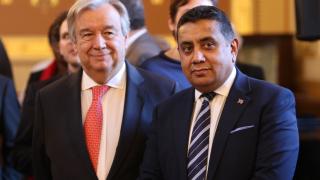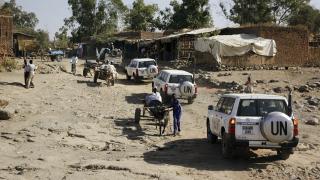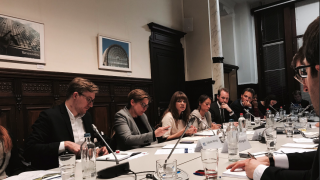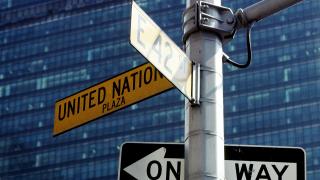
UNA-UK is pleased to be attending next week's meeting at the UN General Assembly on the Responsibility to Protect (R2P) - an important opportunity for states and civil society to discuss how to strengthen the international community's ability to prevent atrocities.
There is no greater test of our international system than its record when it comes to preventing atrocities. For this reason, UNA-UK has included this issue as a key strand of our Keeping Britain Global report, which examines the steps the UK must take if it is to live up to its international obligations and deliver positive outcomes for UK citizens and the world.
Despite the UK's broad support for the R2P doctrine, as a permanent member of the Security Council, the prevention of atrocity crimes is a UK responsibility and warrants greater attention than it has been given in recent years. The UK’s present action on R2P does not meet UN best practice and the UK's national security strategies do not adequetly recognise the importance atrocity prevention.
The upcoming General Assembly meeting will allow the Secretary-General to present a report he has written on implementing R2P through championing accountability for atrocity crimes as a means of prevention. But more broadly it provides an excellent opportunity for the UK to champion responsible action to prevent atrocity crimes and make it clear that this is part of the UK's vision for a "Global Britain".
Here are some specific recommendations for UK action to champion atrocity prevention:
The UK should:
- Declare the prevention of atrocity crimes to be a foreign policy priority and mention R2P in its speeches and Security Council interventions on situations where there is a significant risk of atrocity crimes
- Strengthen its R2P strategy by ensuring it is coordinated by a ministerial point person with sufficient resources to support best practice
- Champion the “code of conduct” put forward by the ACT group of countries, whereby UN member states voluntarily agree to not veto action on issues relating to atrocity crimes
Follow @unauk and @laurelrhart for live updates from New York next week including coverage of the General Assembly meeting on Wednesday 6 September.
Background on R2P
Despite the widespread misconception, R2P is rarely about military action. It is about states living up to their obligations towards the helpless victims of war, and global powers like the UK taking a leadership role, in particular at the UN Security Council, to ensure that this happens. It is about adopting sanctions or convening peace talks, or – more fundamentally – about accepting refugees and supporting reform and development to help states protect civilians.
The doctrine of R2P emerged from lobbying led by the global South: the African Union and the governments of Benin and Cameroon. But the UK can be proud of its role in supporting the adoption of the concept in 2005.
Since then, the UK has continued to engage with the principle, for example, by appointing an R2P pointperson within the Foreign and Commonwealth Office and by indicating support for restraint in the use of the veto by permanent members of the Security Council in atrocity situations, an integral part of making R2P more effective. These are important first steps, but if the UK aspires to a leadership role on the world stage it must not just implement these measures but champion them.


